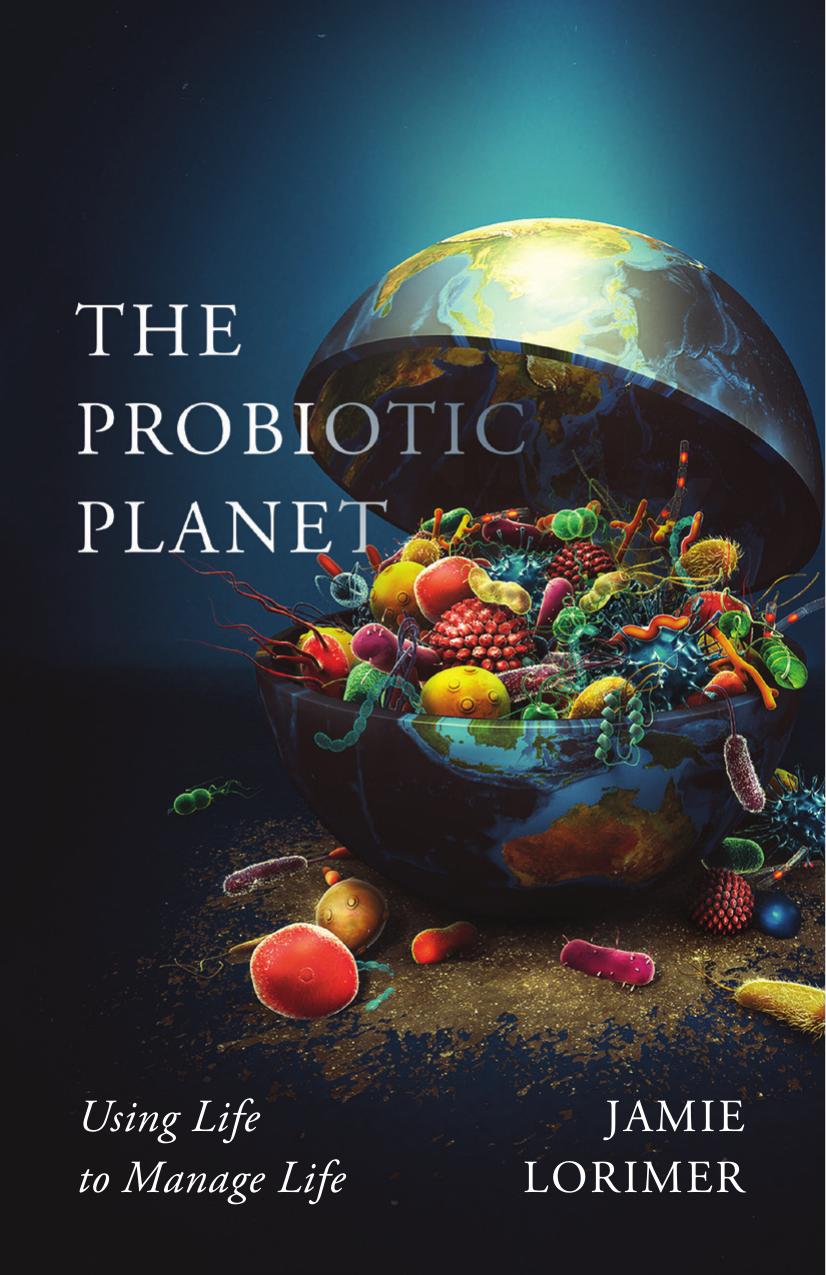The Probiotic Planet: Using Life to Manage Life by Jamie Lorimer

Author:Jamie Lorimer [Lorimer, Jamie]
Language: eng
Format: epub, pdf
Tags: science, Philosophy & Social Aspects, Ecology, Life Sciences, Microbiology, MED052000 Medical / Microbiology, SCI045000 Science / Life Sciences / Microbiology, SCI075000 Science / Philosophy & Social Aspects, SCI023000 Science / Electron Microscopes & Microscopy
ISBN: 9781452963426
Google: _EoHEAAAQBAJ
Publisher: U of Minnesota Press
Published: 2020-11-03T23:55:48.768262+00:00
Figure 27. Lutz Heck and Hermann Göring on a hunting trip, December 1934. Source: Bundesarchiv, image 102-04224. Photograph by Georg Pahl.
In contrast, contemporary enthusiasts for rewilding Europe push their ecological reference conditions further back. They advocate a Paleolithic baseline, set before the premodern hunting and agrarian landscapes of medieval and early modern Europe that have dominated much conservation. Drawing on the writings of Frans Vera, they find their desired past in the preagricultural landscapes of the early Holocene that emerged with the retreat of the ice sheets at the end of the Pleistocene (ca. 11,700 BP).21 This period is marked by a great diversity and abundance of animal life, including the full guild of predators, grazers, and browsers (many of which are now extinct). As I explained in chapter 3, the focus here is on re-creating functional ecologies by detecting the ghosts that haunt the present. Heck cattle are introduced as ecosystem engineers, aurochs surrogates capable of restoring past grazing regimes, ideally through self-willed processes requiring minimal human management.
In these accounts, Paleolithic humans figure as nomadic hunter-gatherers, living in much lower densities than modern Europeans. These ancestors were blessed with far greater ecological connectedness and awareness, but they were still capable of driving the overkill that led to the extinction of keystone carnivores and megaherbivores.22 The ecological role afforded to contemporary people differs markedly to that of Lutz and Göring, for whom the beneficent hunter-forester maintains the balance of a Heimat cultural ecology. For Rewilding Europe, people figure as urban, postproductivist observersâscientists, tourists, and a few local publics and the employees who will supply their needs.23 The social and ecological relations imagined here are still pastoral (inasmuch as they reference an idealized rural setting), but they are linked to a prehistoric, not premodern, moment. This is a reinvented paleo, but not one in which people simulate human Paleolithic practices.24 In this postpaleo, recreational hunting is discouraged. Touristsâ trophies will be virtual; they will leave only footprints. When animals need to be killed, this should be done (as at OVP) with âthe eye of the wolfâ: a clinical yet naturalistic death designed to simulate regimes of canine predation rather than those of human hunters (paleo, medieval, modern, or otherwise).
The postpaleo manifests slightly differently in the case of biome restoration. While many take worms and other probiotics as supplements in otherwise unchanged modern, urban, postindustrial lifestyles, there are some for whom an awareness of biome depletion and the idea of evolutionary mismatch necessitates more holistic processes of retrospective recalibration and the reenactment of paleo lifestyles. This approach is best exemplified in the complex character of Jeff Leach. Leach is an anthropologist and a microbiologist who works with the Hadza in Tanzania. He is the author of Rewild, which actively promotes the salutary benefits of aligning oneâs microbiome with those living in the wild.25 He has undergone an FMT, donated by a Hadza man of his own age, and spends time eating and drinking local foodstuffs to reset his gut ecology. He reports on this as a process of â(re)becoming human.
Download
The Probiotic Planet: Using Life to Manage Life by Jamie Lorimer.pdf
This site does not store any files on its server. We only index and link to content provided by other sites. Please contact the content providers to delete copyright contents if any and email us, we'll remove relevant links or contents immediately.
Spare by Prince Harry The Duke of Sussex(5197)
Machine Learning at Scale with H2O by Gregory Keys | David Whiting(4313)
Fairy Tale by Stephen King(3399)
Will by Will Smith(2920)
The Bullet Journal Method by Ryder Carroll(2573)
Hooked: A Dark, Contemporary Romance (Never After Series) by Emily McIntire(2555)
It Starts With Us (It Ends with Us #2) by Colleen Hoover(2367)
Rationality by Steven Pinker(2366)
Can't Hurt Me: Master Your Mind and Defy the Odds - Clean Edition by David Goggins(2342)
Friends, Lovers, and the Big Terrible Thing by Matthew Perry(2230)
The Becoming by Nora Roberts(2203)
Love on the Brain by Ali Hazelwood(2078)
A Short History of War by Jeremy Black(1848)
HBR's 10 Must Reads 2022 by Harvard Business Review(1845)
The Strength In Our Scars by Bianca Sparacino(1844)
A Game of Thrones (The Illustrated Edition) by George R. R. Martin(1746)
Leviathan Falls (The Expanse Book 9) by James S. A. Corey(1745)
515945210 by Unknown(1667)
Bewilderment by Richard Powers(1621)
